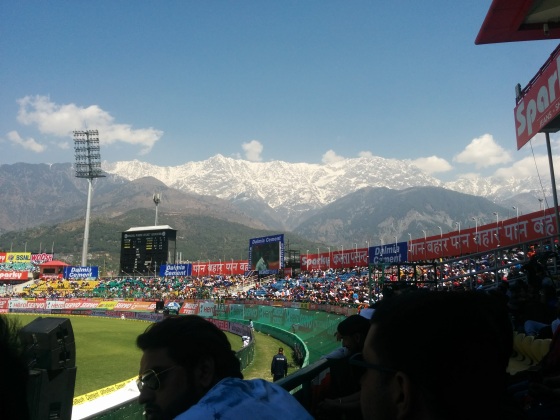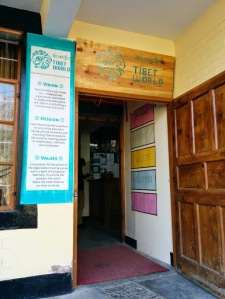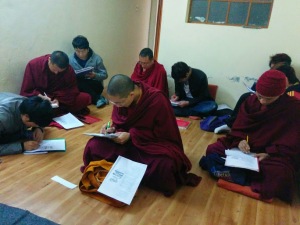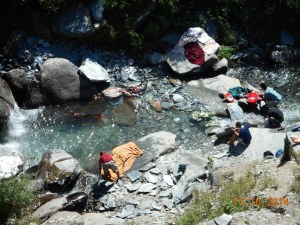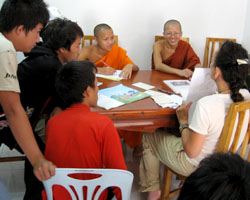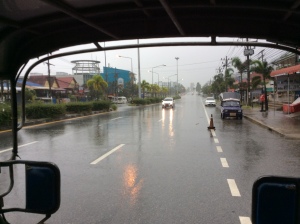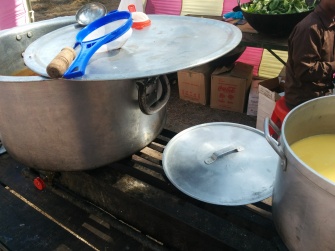
Tibetan tea
It has been quite some time since I last posted on this blog. Since last time, I have been back three times to McLeod Ganj in India teaching English, working with a non-government organisation for two semesters and now for another institution. McLeod Ganj, for anyone who doesn’t know, is located the foothills of the Himalayas and is the home of the Dalai Lama. My students are mostly adults who, like the Dalai Lama, are living in exile from Tibet. Sometimes there are also Bhutanese students and others who are staying here and are using the opportunity to improve their English.
In February this year, I arrived back in India and, yet again, made my way to McLeod Ganj. This time the class was a small group of monks and nuns who were been selected to study science in the USA, and were undertaking a preparatory course. Another Australian ESL teacher has been here many times and this is a task she usually undertakes every two years, but this time she asked me to come here for the final part of the course and this was approved by the Director. I am staying in the English teacher’s accommodation and it is comfortable and clean, with a good kitchen. It’s peaceful, close to the classroom and has great views of the snow capped Dauladar Range. There is an improvement on last year healthwise too. In 2016, a bout of Typhoid very soon after arriving left me in a debilitated state and I spend the next few months teaching in a feeling exhausted and weak while recovering. And yes, I was vaccinated, just unlucky.
For months before arriving this year, I collected materials, downloading films and many other items for use here. My focus was on academic English and we worked out way through some of the topics typically studied in Australia in university preparation courses, such as plagiarism and referencing, academic vocabulary and writing, etc. The students particularly enjoyed learning pragmatics and picking up the nuances of the language. We even had a guest speaker from the US who worked with them to reproduce some everyday conversations at university and how to respond. I have since found an interesting website for teachers on American pragmatics.
Another useful website is the Cult of Pedagogy which belongs to a teacher from the US called Jennifer Gonzales. Most of her articles are free, but I paid a small amount for her package “Avoiding Plagiarism” and it was great value, providing a much more accessible introduction to the topic for students that helped us to progress to the usual university level materials.
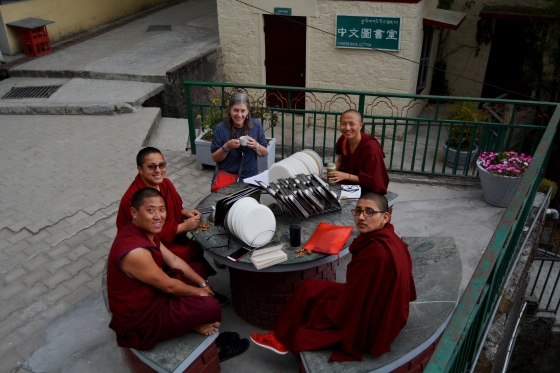
Chai time with some of the lovely science students
Now, for the last few weeks, I am teaching an afternoon class that was intended to be for fairly advanced learners, but instead has attracted a fairly wide range, mostly staff working in the Gangchen Kyishong precinct. Each day I teach about the history of the English language along with some pronunciation and grammar.
The comfortable life here is ending soon and at the end of the month I am travelling to Ladakh, India to work with a former student, a Geshe monk, who is part of a group that has registered a new charitable organisation. Classes will be held over the summer months only. The skills I learnt in 2014 working as a volunteer coordinator at LHA Charity alongside a helpful Tibetan friend, Rabsel, have helped me with recruiting teachers for computer skills and English. I am pleased to have four or five great teachers from the UK, Australia and Canada coming to Leh, Ladakh to help and am hoping to find a few more.
Here is our recruitment poster.
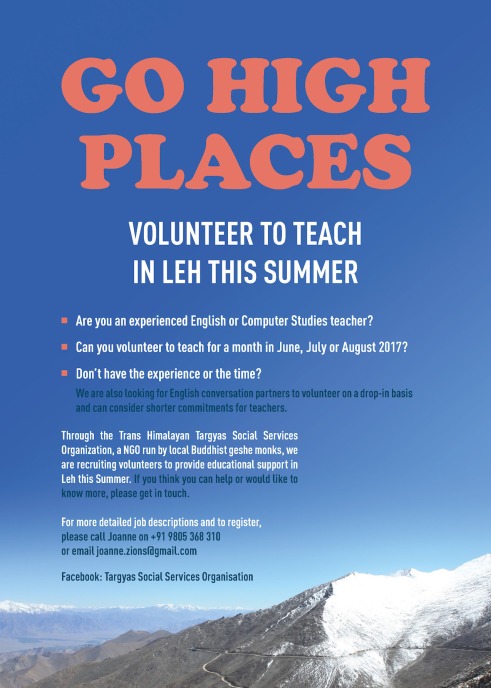
Ladakh is a black hole in terms of internet, so the time here is precious in terms of communications. My next post will have to wait until Is Ladakh, but there should be plenty of stories to tell.
Two more pictures. When Australia played India in Dharamsala, I just had to see it. India won which was a bit disappointing, but it was a great experience.
